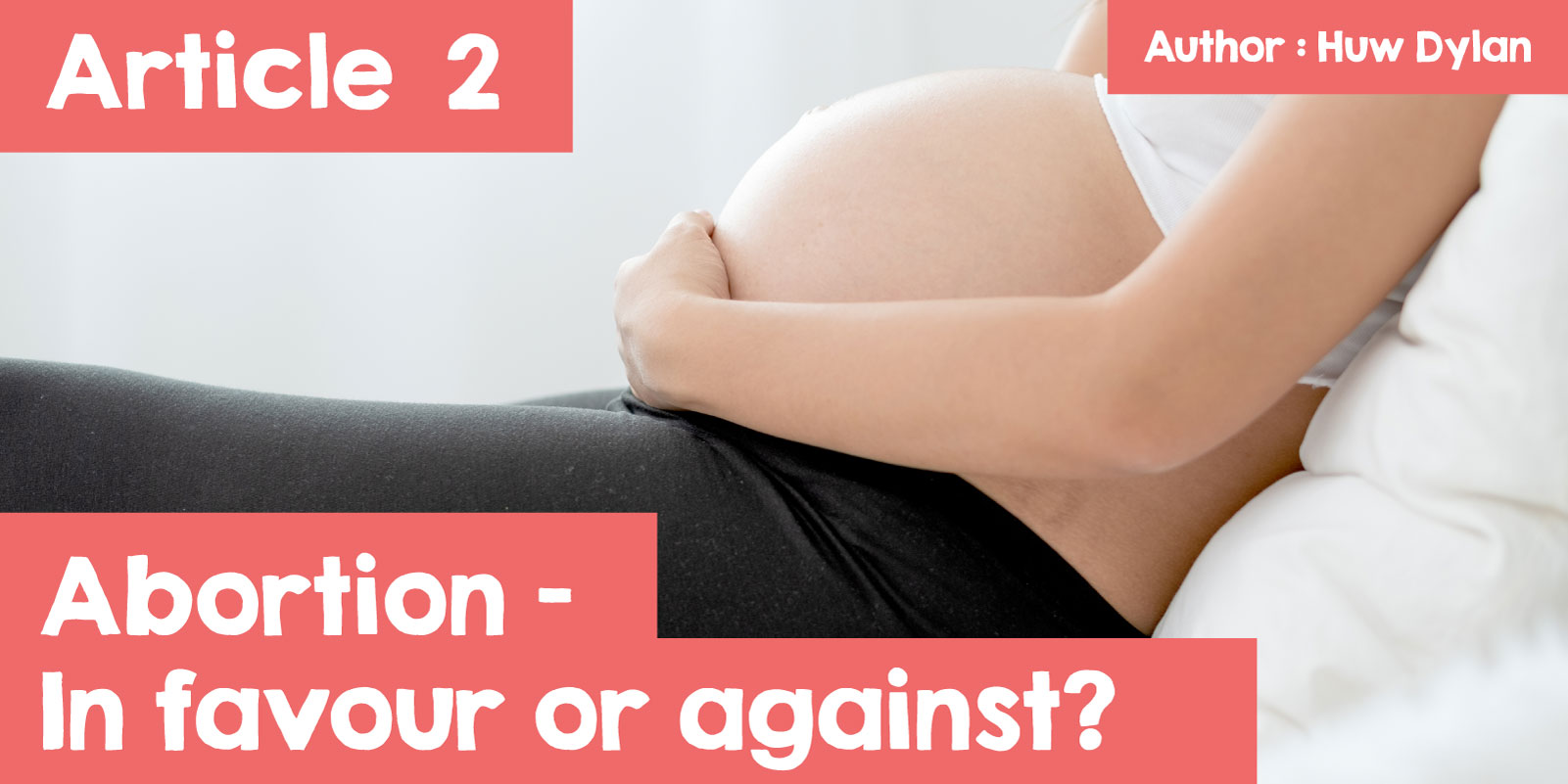Abortion - In favour or against?
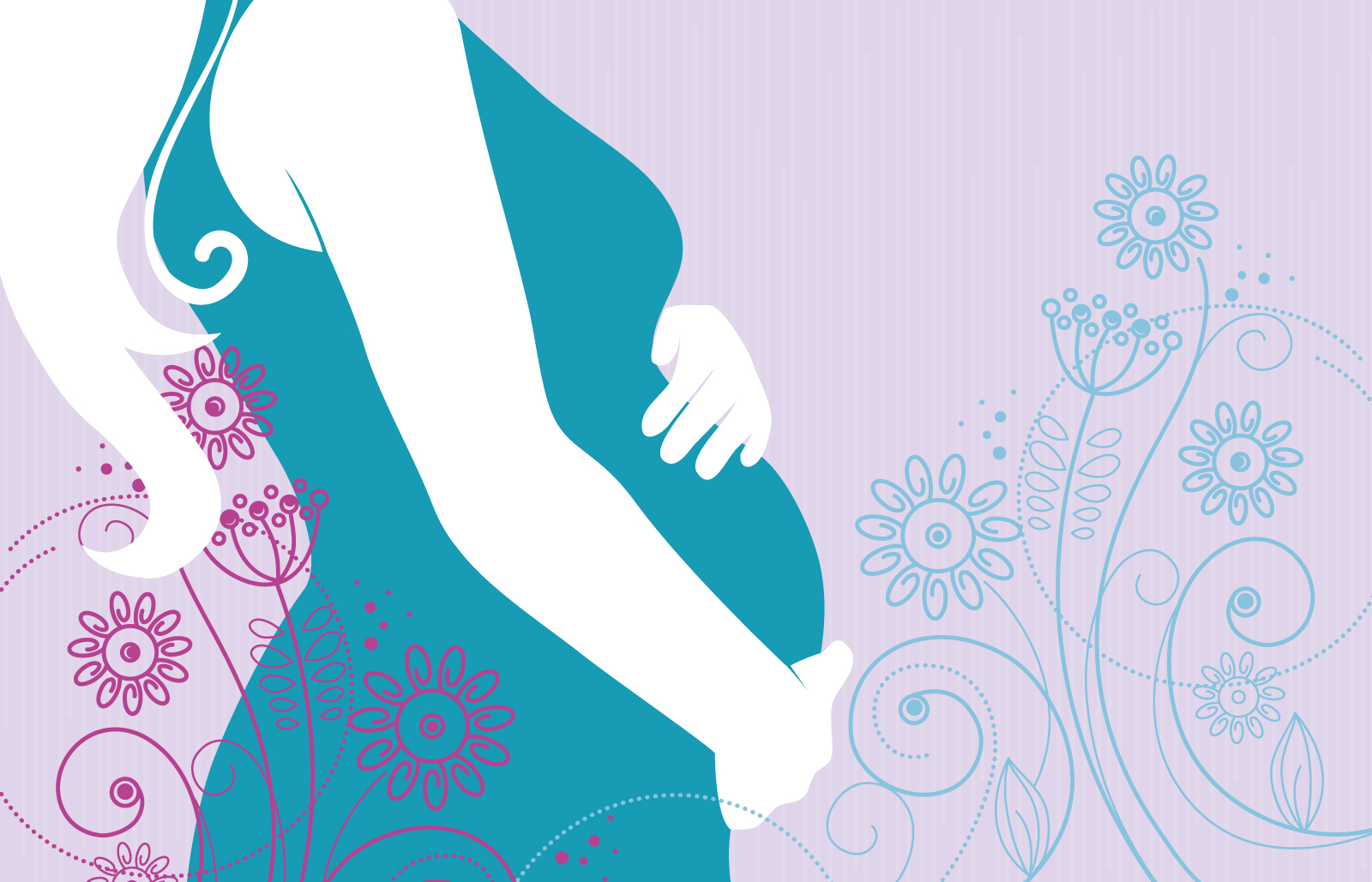
Undoubtedly, abortion is a controversial modern subject in our society. It is also an emotional subject and people have very strong feelings regarding the matter. But can you see anything wrong in the title? Well, the title suggests that the choice is simple - that you are either in favour or against abortion, and that being so in every situation. The truth is that the situation for many people is much more complex as they see themselves supporting abortion in some circumstances and objecting to it in other circumstances.
What is abortion? Abortion is purposefully terminating a pregnancy through a medical procedure by removing the embryo or the foetus from the womb. One of the main arguments regarding abortion is when does life begin. For some, life begins at conception, which means when the man's seed fertilises one of the woman's eggs, and from that point on, the embryo is a human being and, as a human being, should be protected by law like every other human being. For others, life begins at birth and, for others, it begins after different periods growing in the womb - 14 weeks, 18 weeks, 20 weeks or 24 weeks. What exactly does the law state and is abortion legal in Britain?
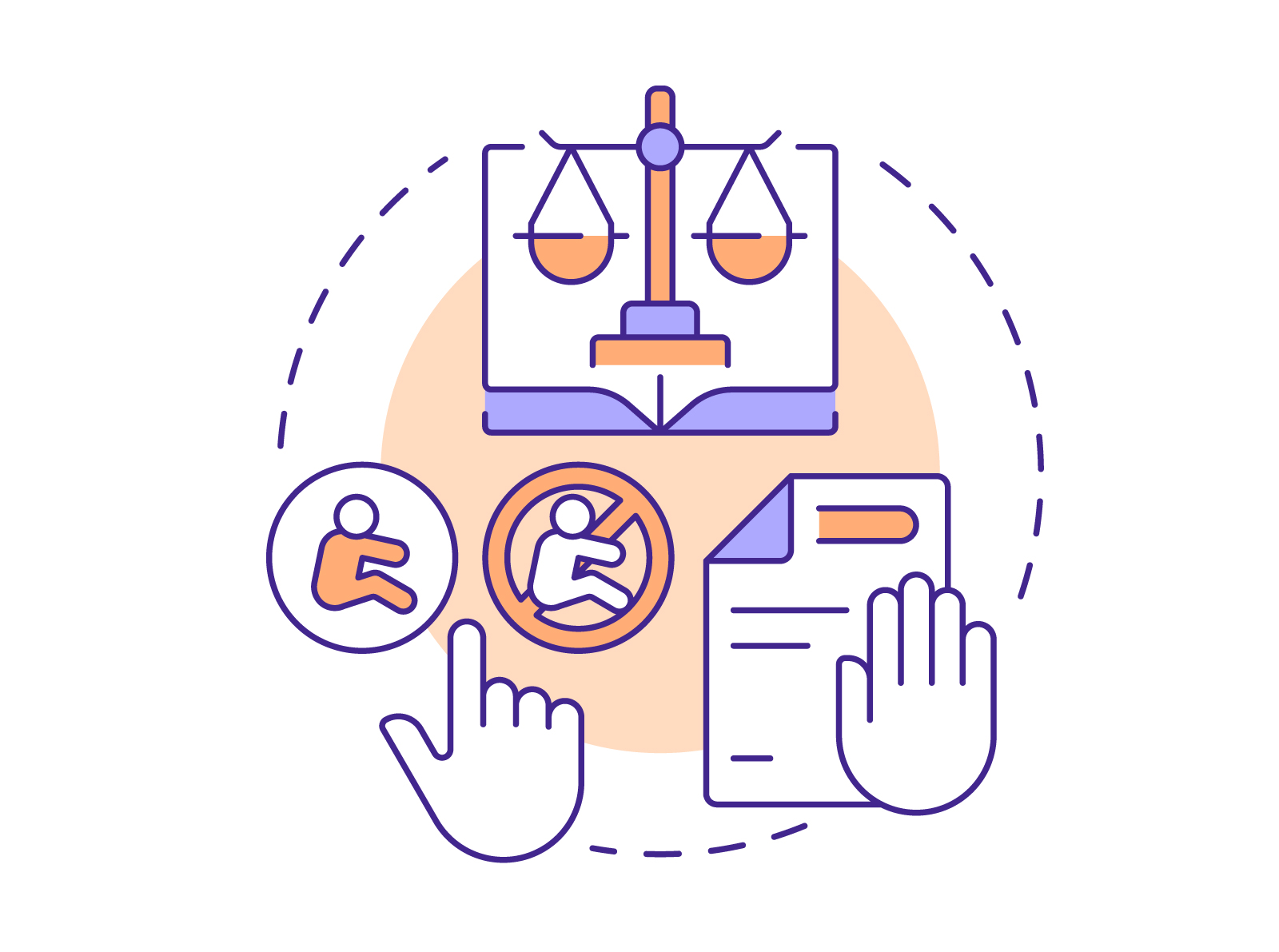
The law in Wales, England and Scotland allows a doctor to terminate a pregnancy under specific conditions. The abortion must take place in a hospital or clinic with a special licence. Before undertaking a legal abortion, two doctors have to agree that the woman has been pregnant for less than 24 weeks and that the abortion is necessary to prevent serious harm to the woman’s physical or mental health or to the physical or mental health of her children if she has any. Abortion is always legal, even after 24 weeks, if there is a serious threat to the woman's health or life or there is substantial risk that the child would be born with serious physical or mental disabilities. In cases of medical emergencies, there is no need for the agreement of a second doctor.
In 2022, 252,122 abortions were recorded in Wales and England - the highest number since records have been kept.

Therefore, what are the matters to consider regarding abortion? One of the most important considerations is the mother's choice and rights, as well as her wish regarding the pregnancy and the baby. Also, there is obviously a need to consider what are the rights of the child in the womb, mainly its right to live. The right to follow your beliefs and values, religious and non-religious, and act according to your own conscience is another important consideration. These considerations could be a basis for several arguments in favour and against abortion.
Those who are in favour of abortion would argue that the woman has the right to choose whether to have the baby or not and that she has the right to do as she wishes with her own body. The woman could be too young to raise a child or, if she had been raped, it would be cruel to force her to carry the rapist's child. Another argument is that the health and well-being of the woman is more important than the health and well-being of the embryo or the foetus. It is argued that the embryo and the foetus do not have the same rights as the mother. Some argue that the child's quality of life would not be good if it was born to a woman who did not want it or was born with serious disabilities that could cause suffering and pain.
Others would object, arguing that every human being, including an embryo or a foetus, had the right to live and fulfil its potential. Abortion is not the only choice, it is possible to consider other choices such as keeping the child, fostering or adoption. Another argument is that people who are born with disabilities can live full and happy lives, referring to the Paralympic games as an example of that.
It is clear that every main religion in the world has its own views regarding abortion, but it is impossible to say 'this is the Christian view' or 'this is the Muslim view' because the opinion varies within the same religion.
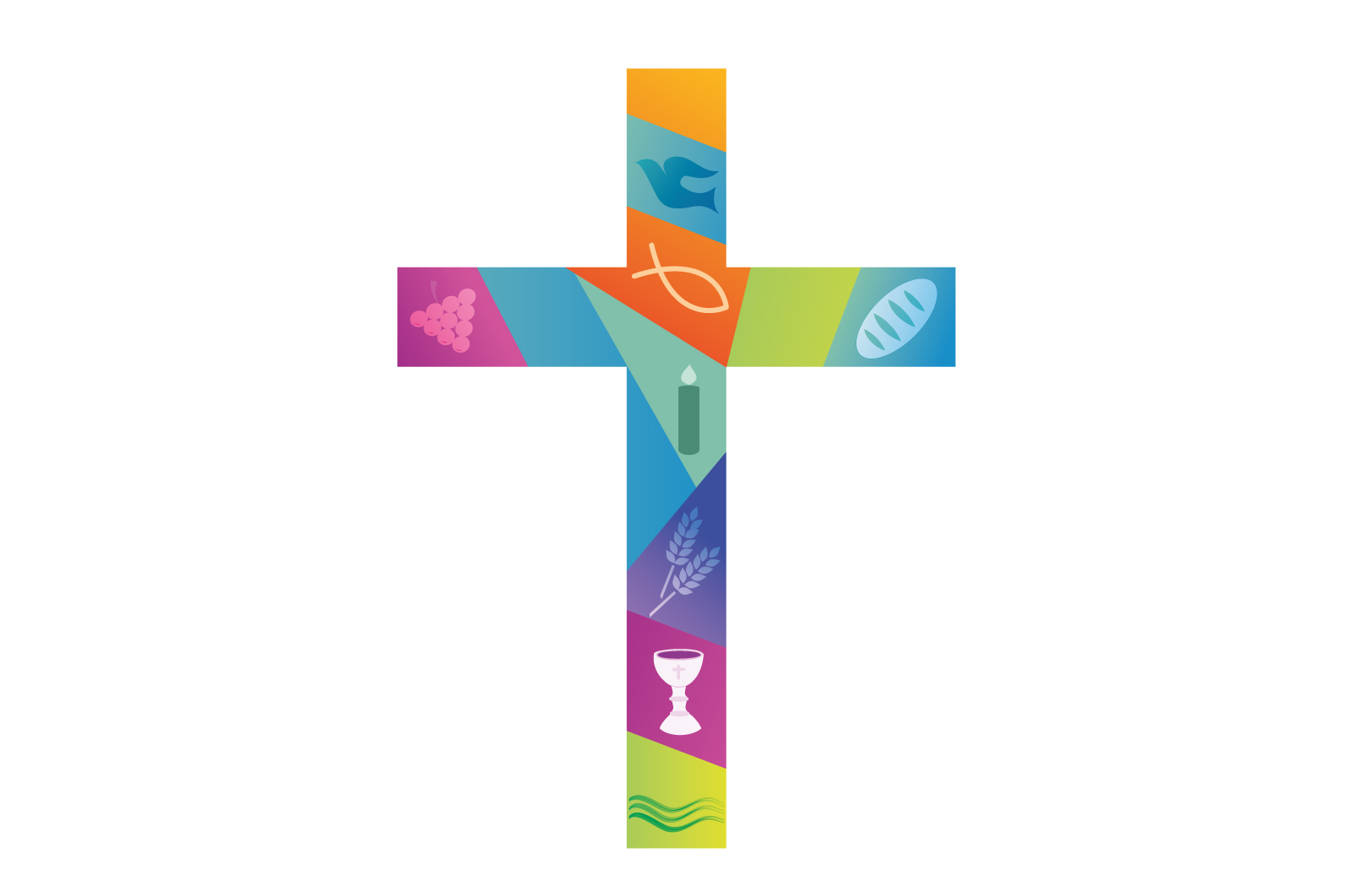
Many Christians completely disagree with abortion in every situation. This is the view of the Catholic Church and the Orthodox Church, because they believe that life is sacred and has been given by God, therefore every life is valuable. Other Christian churches have different views. Although they worry about abortion and oppose it for social reasons such as impacting careers, they believe that it could be the best choice in some circumstances such as a situation where a decision has to be taken between the life of the mother or the life of the child. In terms of the Protestant denominations, they tend to let their members decide whether abortion is right or not, depending on their specific situation.
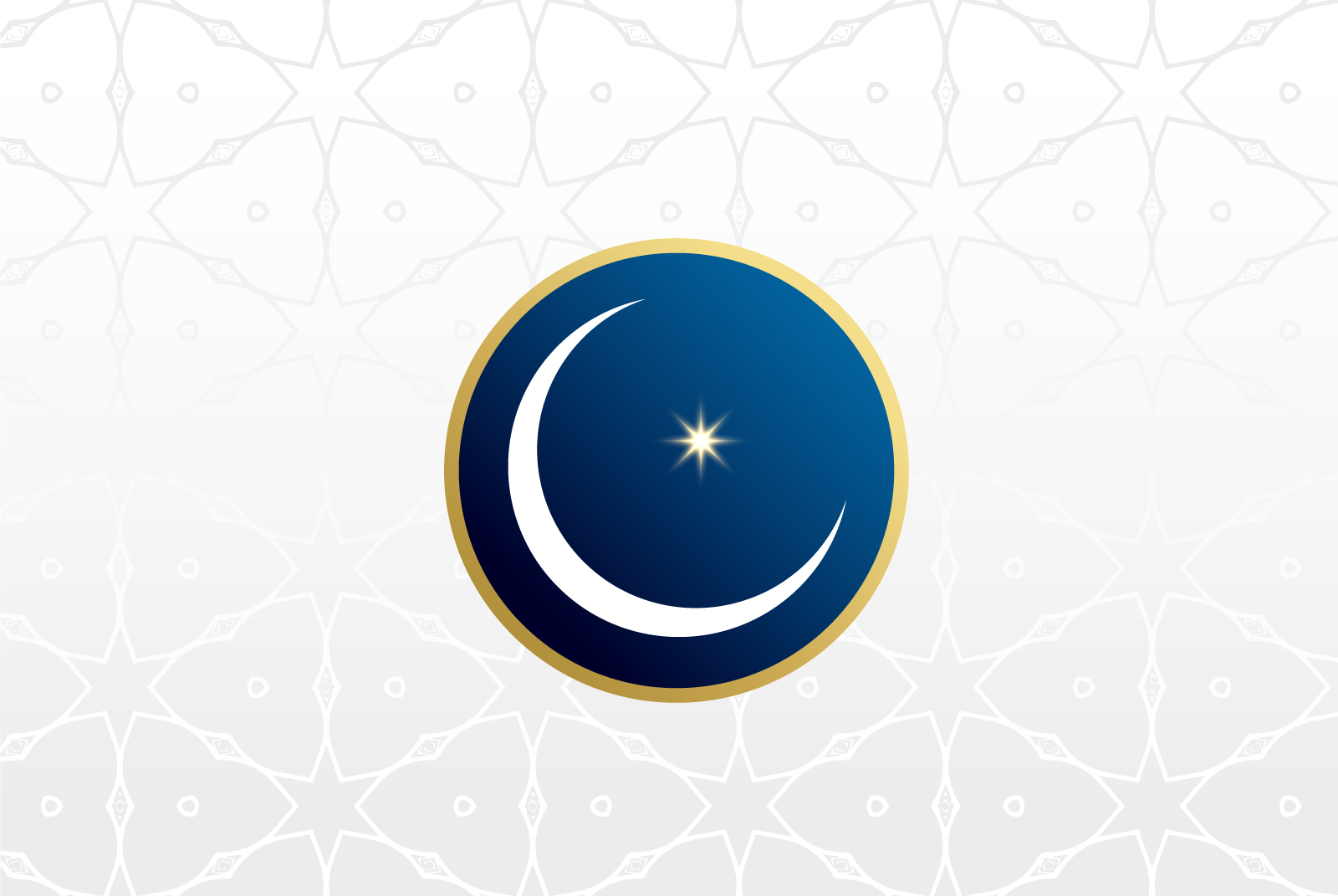
Generally, Muslims believe that life is sacred because Allah creates each life and, therefore, he is the only one who can bring a life to an end. Therefore, many Muslims are against abortion and believe that taking a child's life is wrong, and that this would have to be accounted for on Judgement Day when Allah judges everyone. Again, some Muslims are prepared to allow abortion if there is a just reason. Economic consideration is not regarded as a just reason, but a situation where the mother's life is at risk is considered just. Sometimes, there is disagreement regarding what is a just reason or not. Some Muslims believe that abortion is acceptable if the child is likely to be born with serious disabilities or very ill, but others reject that this is a just reason. Also within Islam, there is a discussion as is happening with the law, regarding the development of the foetus in the womb and many Muslims believe that the child in the womb acquires a soul after 120 days, and therefore an abortion should not be allowed after this time.
Therefore, we see in the variety of different standpoints how complex a matter such as abortion is and often how difficult it is to make a moral decision. Can religious teachings help or does it make things more difficult? What do you think?


